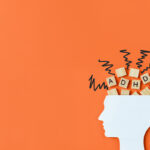Does this sound familiar? You sit down to help your child with homework or study for a test, and it winds up being an exercise in frustration. It’s been a while since you’ve had to multiply and divide fractions, and you’ve likely erased the memory of dedicating long hours to prep for the dreaded Constitution test. As a busy parent, you’re tired, and as a school-weary student, your child is spent. Oh, and then there’s the pandemic to contend with.
In many cases, parents hire tutors to work with their children, and while the supplemental help can be enough, your child may require the attention of an educational professional with a higher level of training to meet their unique needs. That person is a Learning Specialist, and below we discuss their distinctive qualities.
Advanced Credentials
Typically, tutors help students stay current with homework assignments, study for tests, and supplement normal schoolwork with extra academic exercises to keep them on track in specific classes. Often, tutors range from high school or college students to active or retired teachers.
In comparison, Learning Specialists have masters degrees, specialized training in education, and usually have backgrounds as special education teachers. They are uniquely qualified because Learning Specialists work to build underlying processing skills–including executive, auditory, visual, visual motor, among others–in addition to the academic work. In that respect, Learning Specialists provide individualized instruction and develop private interventions for students.
Leverage Clinical Evaluations
Another key differentiator is that Learning Specialists understand Psychoeducational and Neurpsychological evaluations and use the findings to inform their instruction.
A psychoeducational evaluation is conducted by a psychologist and assesses a child’s intellectual and academic abilities.
A Neuropsychological evaluation is an assessment of how one’s brain functions and is conducted by a neuropsychologist. It measures intelligence, executive functions, attention, memory, language, perception, sensorimotor functions, motivation, mood state and emotion, quality of life, and personality styles.
In short, learning specialists know how to demystify the data rendered from these evaluations to help students develop the skills necessary to meet their learning challenges.
Solid Understanding of IEP’s and 504 Plans
Students with behavioral and learning challenges often have Individualized Education Plans (IEP) or 504 Plans in place.
An IEP is a plan that outlines the special education instruction, supports, and services that students with disabilities are legally entitled to receive by their school district. A 504 Plan offers support to students with disabilities and covers any condition that curbs daily activities in a significant manner. The main difference between the two is that IEP’s are for special education students.
Since many learning specialists have backgrounds in special education and accommodating students with disabilities, they are armed with the expertise to leverage IEP’s and 504’s for tailored instruction to set students up for success.
Work With a Chicago Mind Solutions Learning Specialist
Our team of Learning Specialists work one-on-one with students, as well as in group settings to improve math, reading, writing, standardized test-taking, and executive functioning performance. We recognize that everyone’s challenges and learning styles are different, and we design our approach accordingly. For more information, please contact us at (224) 723-5050 or email info@chicagomindsolutions.com.






